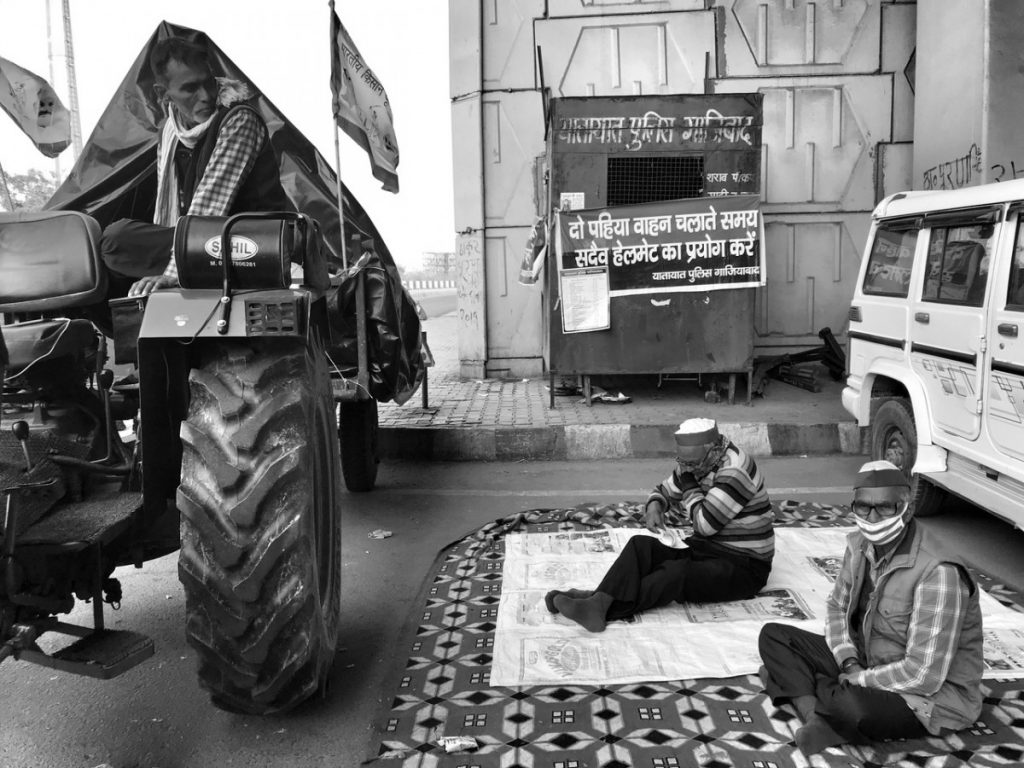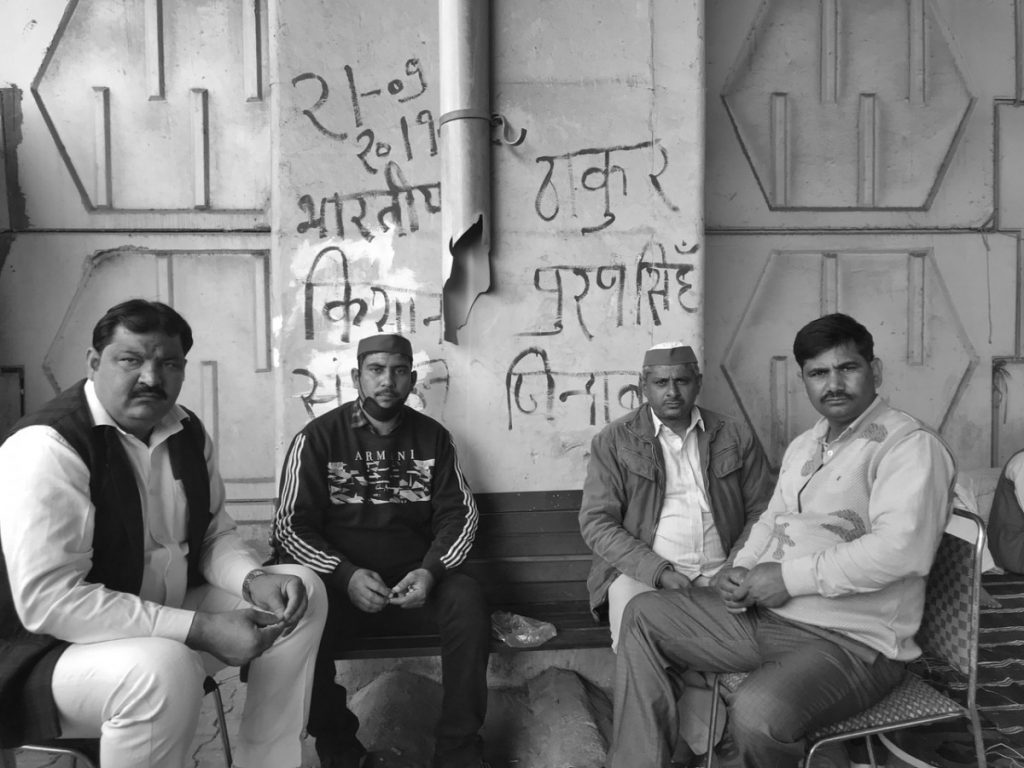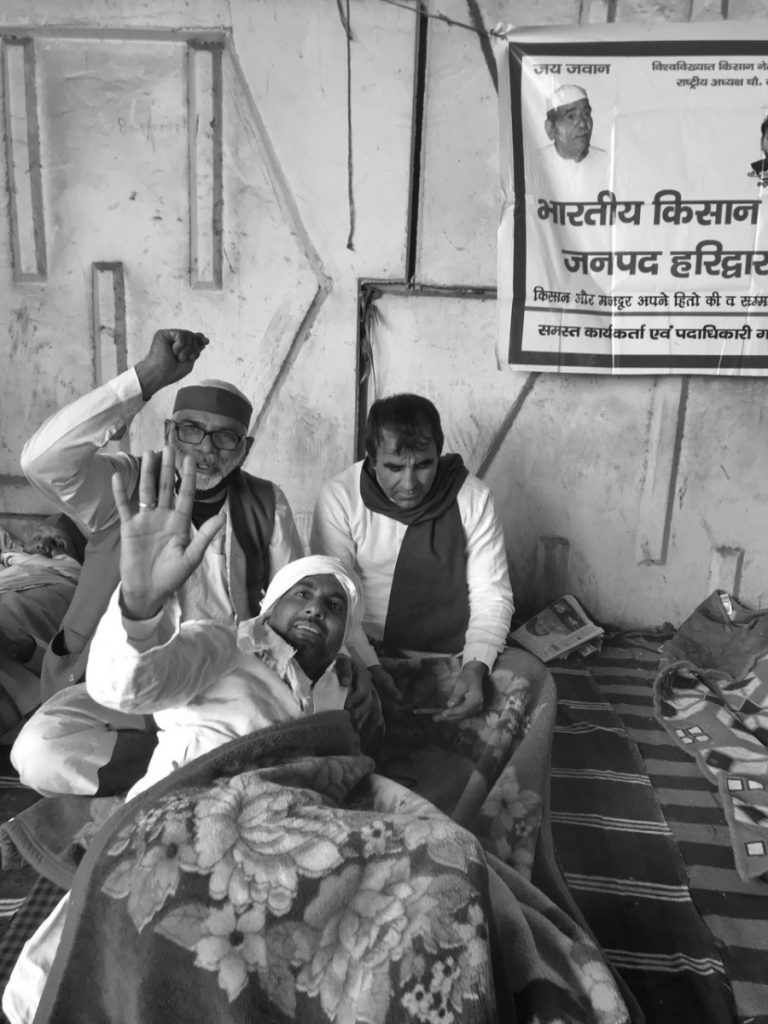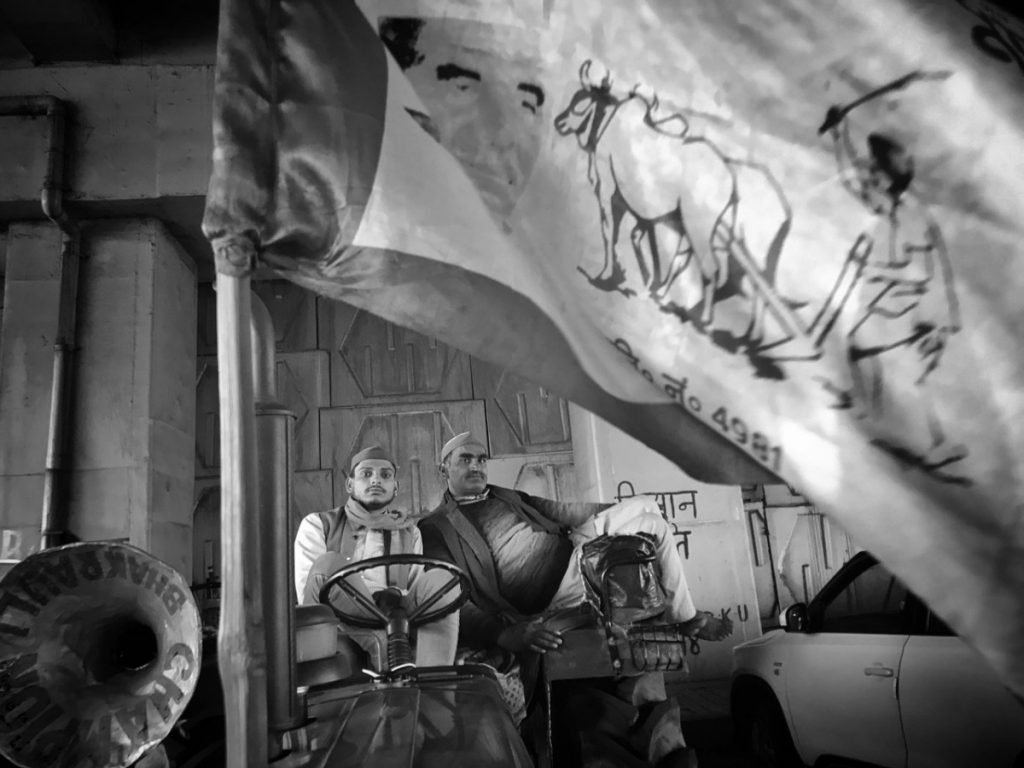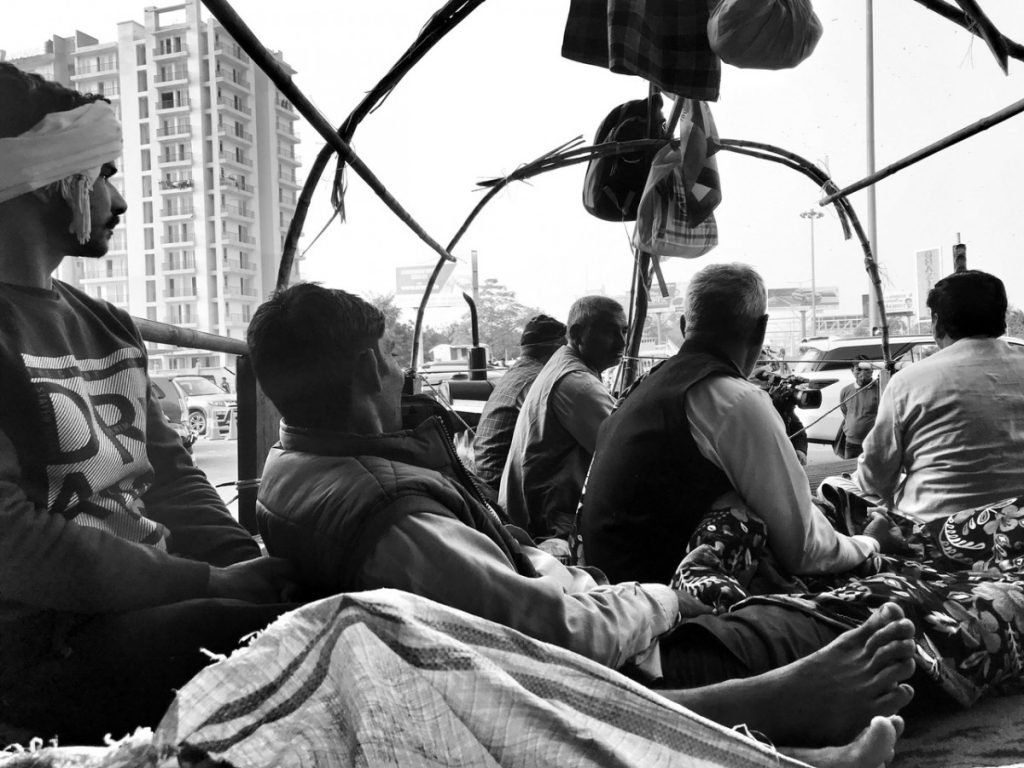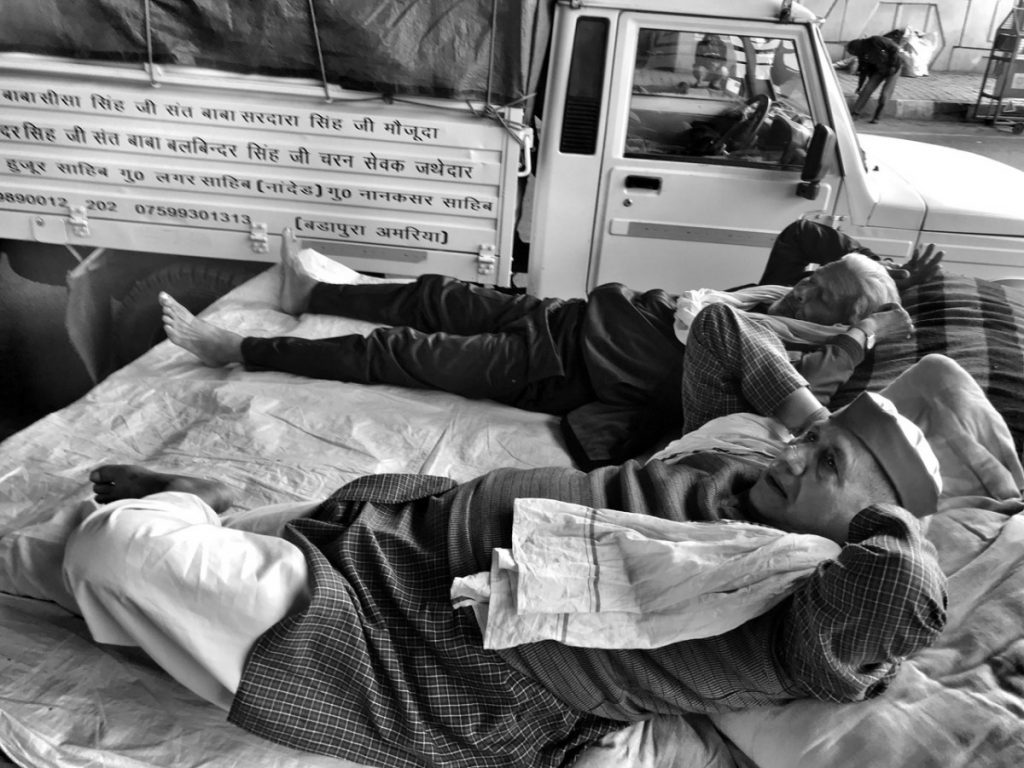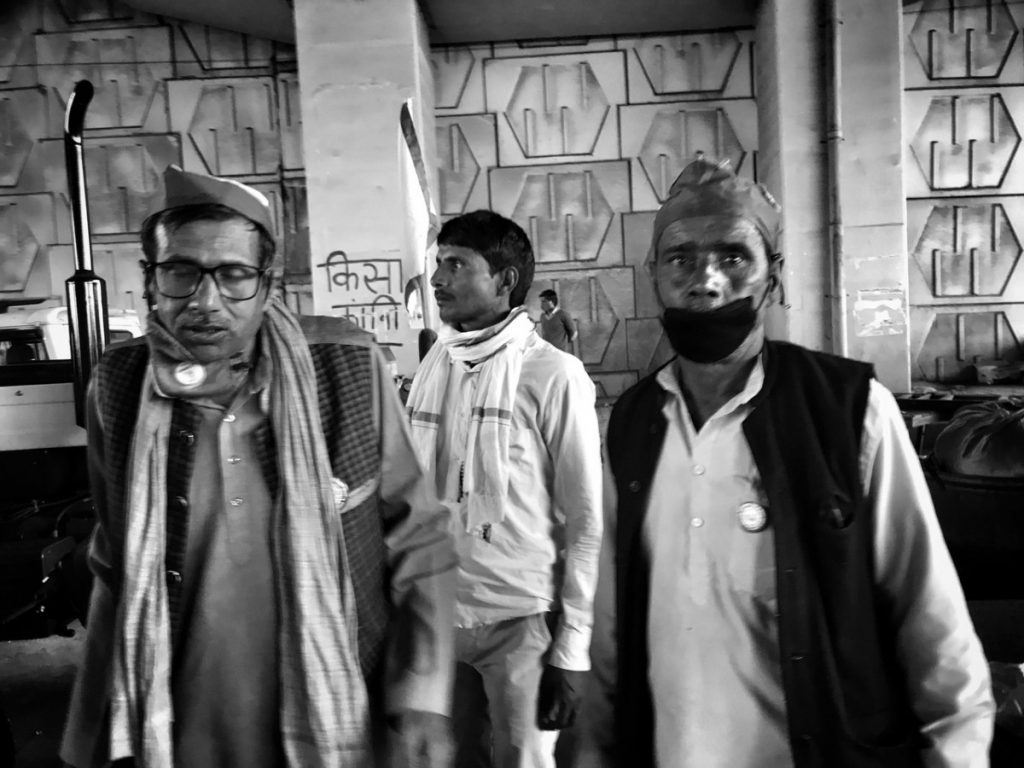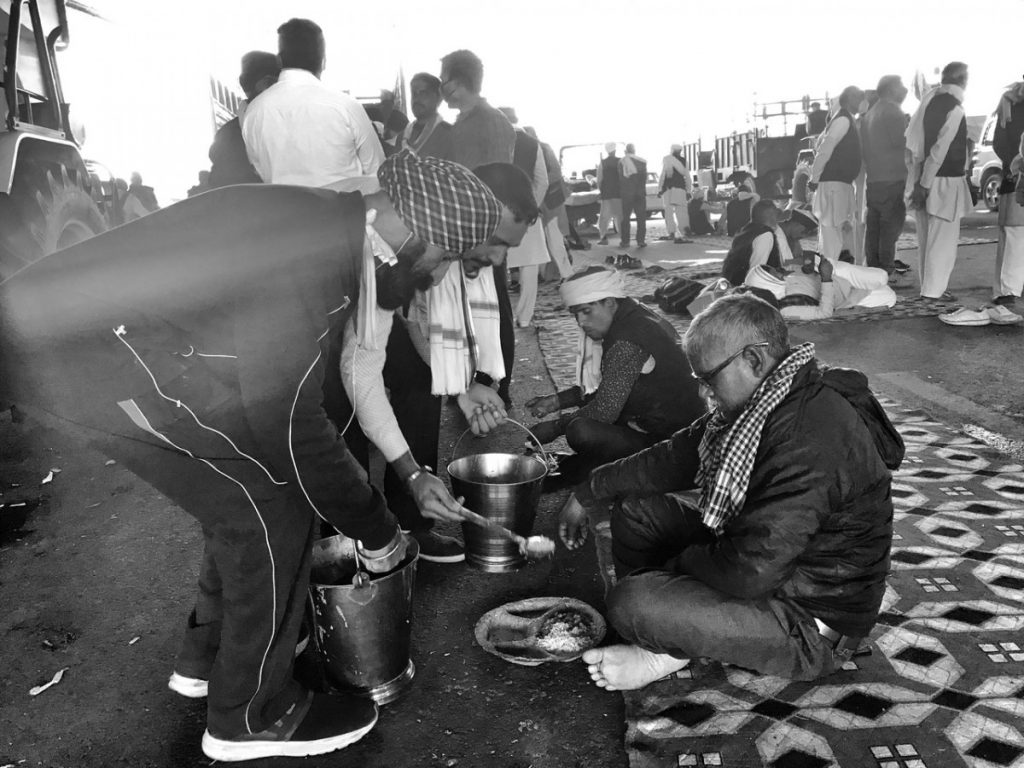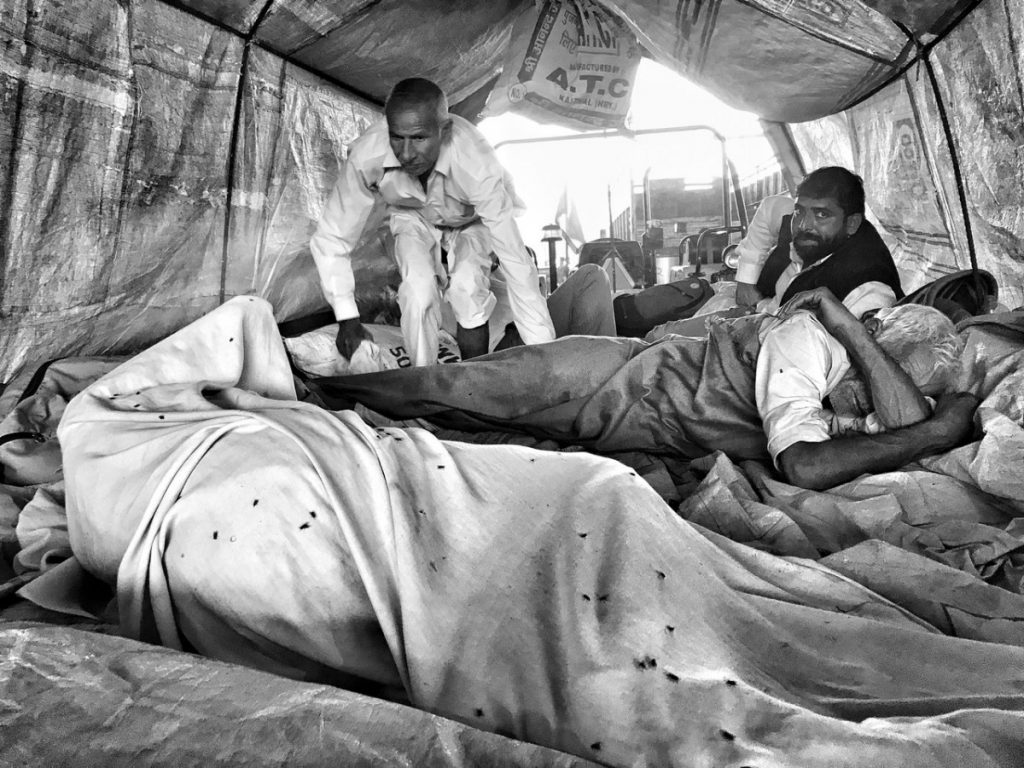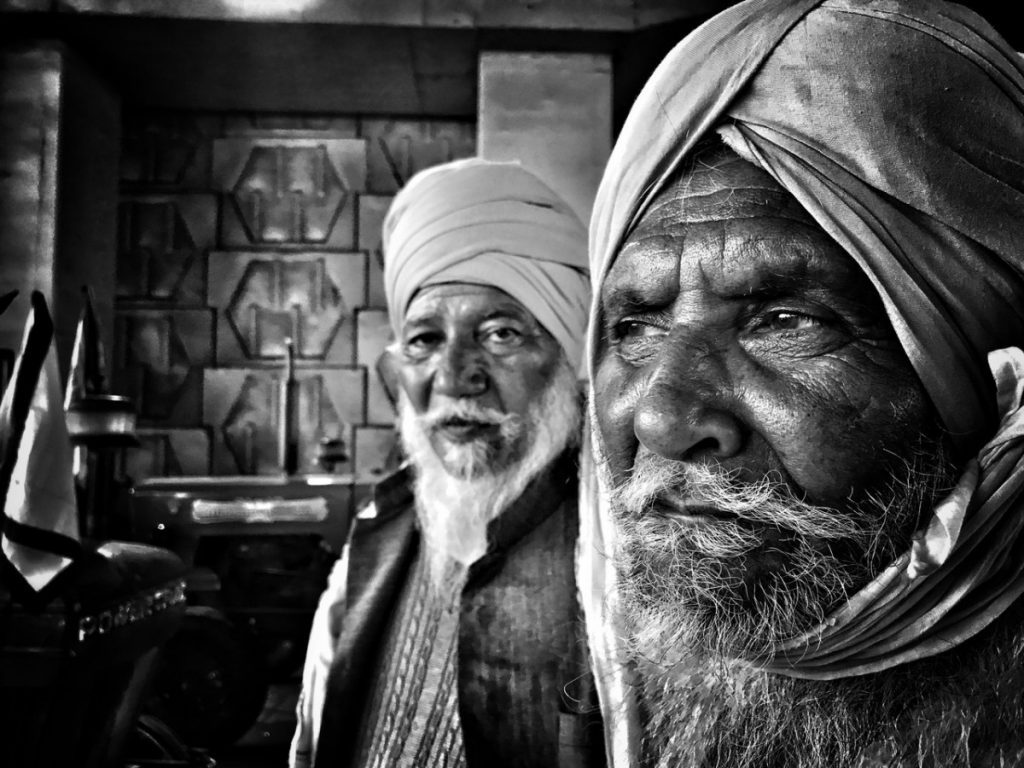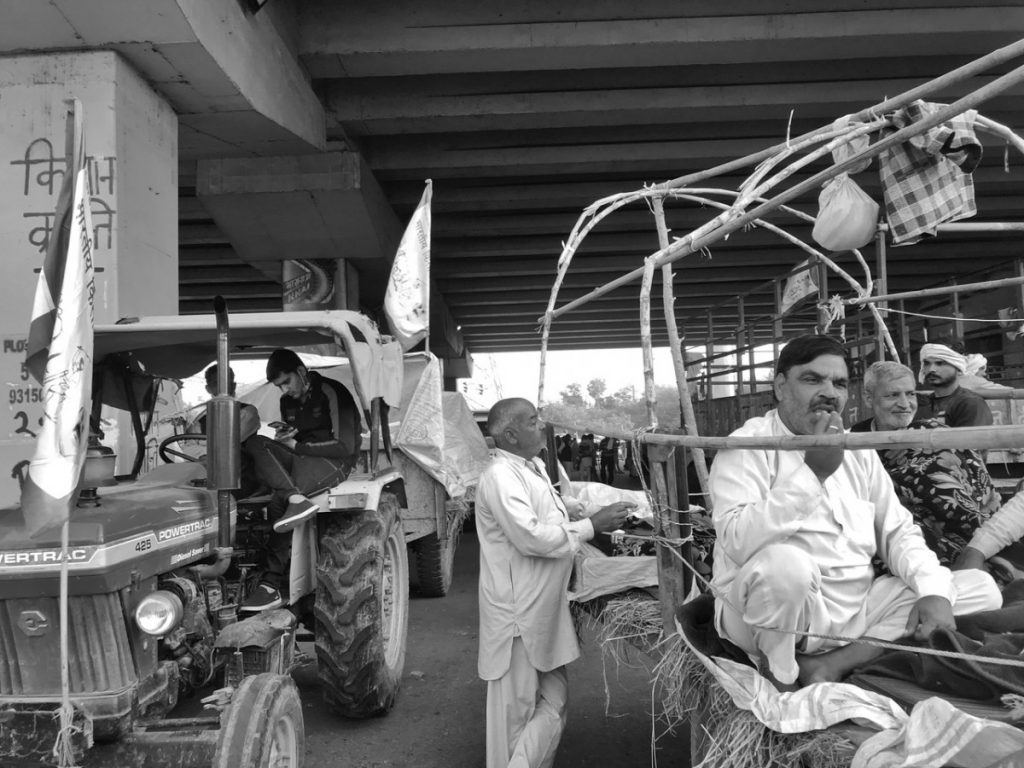New Delhi: As Delhi opened its boundaries to protesting farmers in Burari’s Sant Nirankari Ground, farmers refused to enter and protest there as they felt that their movement will lose momentum if they leave the border.
Surrounding the several thousand tractors, trucks, buses and people at the Delhi-Haryana Singhu border were police and BSF, both in large numbers. Singhu border is one of the main routes used to access Delhi from Punjab.
As the third day of protests against the three farm bills introduced by the government in June approached, traffic movement across Delhi felt the effects throughout the day. Farmers, in thousands, have set up camp on the border along with enough ration to last them for months, they say. While some hundred farmers had gathered in Sant Nirankari ground in Burari today, November 28, most farmers were reluctant to shift from their protest site at Singhu. Out of the several thousand farmers who were protesting, hardly 200 of them reached the ground in the morning. The police have made arrangements, such as installing temporary toilets, at the ground.

Protesters at Santi Nirankari Ground in Burari. Photo: Ismat Ara/The Wire
Friday had witnessed police using teargas shells, water cannon and multi-layer barriers to block the protesters but the farmers had remained firm and continued to push through as part of their ‘Delhi Chalo’ march against the Centre’s new farm laws.
Langars, flags, charged up speeches
On one side, langar (free food served by the Sikh community) was being cooked non-stop for the many thousand farmers as well as others who have joined the protest. On another a speech was being delivered by a farmer leader about the dangers of the three new laws. Among the elderly farmers listening was a 70-year-old man.
Also read: ‘Attack on Agitators Felt Personal’: Farmer Leading Convoy of 10,000 Women Protesters
Dev Singh, from Punjab’s Patiala, has been here for two days now, but still hasn’t got tired of the slogans, among which is his favorite, “Bole So Nihal…Sat Sri Akal”. His hands trembled a little, but he still held the green flag high up in the air. Needless to say, Singh was not the only elderly person in the protest.

A protester wears a paper cap with the slogan, “Jai Jawan, jai kisan, jai swaraj.” Hail the army, hail the farmers, hail the self governance.
But what about coronavirus?
Singh said that the government was using coronavirus as an excuse to send them back from the protest site. “If they [government] are so concerned about coronavirus spreading, why did they bring such laws during the pandemic, forcing us to come out?” he asks.
The three bills, The Farmers’ Produce Trade and Commerce (Promotion and Facilitation) Bill, 2020, The Farmers (Empowerment and Protection) Agreement of Price Assurance and Farm Services Bill, 2020, and The Essential Commodities (Amendment) Bill 2020 were introduced in June as ordinances, when the country was gripped in fear and doubt over the pandemic.
Singh said he has not travelled alone. “Try counting the tractors, the sea of people…they have all come with me.” His family includes his wife, his two sons, two daughters and his grandchildren, he later revealed. All of them are part of the ‘Dilli Chalo’ protest, he added.
“My family was afraid that I might get sick. But I am more scared for them, their future, our farms,” he said.

Protesters at Delhi-Haryana border. Photo: Ismat Ara/The Wire
A message to PM Modi
“Please tell him [Prime Minister Narendra Modi] that the bread he eats…it grows in our farms. We, farmers, are the ones who feed the entire country,” he said.
He added that he did not support any particular party, but despised any party that works against the farmers.
“He promised that achche din (good days) will come, but when?”
Singh has been a farmer since he was five or six years old. What began as an exercise to help the elders of the family has continued to this day. “I am old but not weak and still do farming,” he said. In Punjab, he grows rice, wheat and sugarcane.
Even though the Narendra Modi government has assured the farmers that the bills will “empower” small, marginal farmers by allowing them to access markets of their choosing, Singh disagreed. He said, “If the farmers do not get the MSP for their produce, they will ultimately commit suicide as they will be doing hard work but not getting anything out of it.”

Farmers sit as a leader addresses them. Photo: Ismat Ara/The Wire
The three laws
When asked if he knows details of the three laws that the protests are against, he said that all he cares about is his children, and he knows that this law will hamper their farming activities. “All farmers are upset with these laws, they must have a reason. I had to join them in their agitation. There is power in numbers.”
He said, further, that farming is their bread and butter. “It is through farming that we have sustained our families our entire lives. This is how we have taken care of our kids.”
“Privatisation is never good, anyway,” he added.

Tea is being prepared by protesters for serving. Photo: Ismat Ara/The Wire
Singh and thousands of farmers believe that it will be difficult to negotiate directly with large-scale, private buyers and that removing mandis will result in farmers’ exploitation. Farmers are also worried that the MSP system, guaranteed by the government, will be removed if private players enter the market.
According to The National Crime Records Bureau of India, a total 296,438 Indian farmers have committed suicide since 1995, accounting for 11.2% of all suicides in India. Of these, 60,750 farmer suicides were in the state of Maharashtra since 1995, with the remaining across Odisha, Telangana, Andhra Pradesh, Madhya Pradesh, Gujarat and Chhattisgarh, all states with loose financial and entry regulations.
“They now want to make the farmers of Punjab poor as well and drive them to suicide,” a young farmer said while addressing a crowd.
“But Punjab will rise against these laws for the farmers of the entire country. Punjab will not let this happen,” he added.





